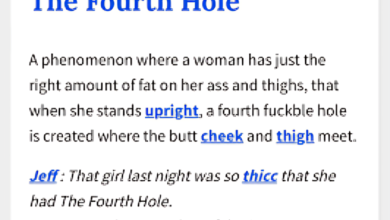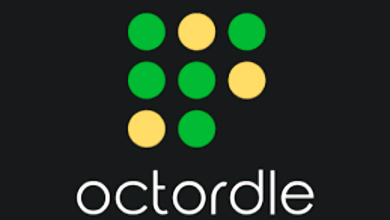The Ultimate Guide to Britannica A Comprehensive Resource for Knowledge

In the digital age, where information is at our fingertips, Britannica stands as a beacon of reliable and authoritative knowledge. Whether you’re a student, educator, or simply a curious individual, Britannica has been a trusted source for centuries. This article delves into the history, evolution, and significance of Britannica, exploring why it remains a vital resource in today’s information-driven world.
What is Britannica?
Britannica, formally known as the Encyclopædia Britannica, is one of the oldest and most respected encyclopedias in the world. First published in 1768 in Edinburgh, Scotland, it has since become a symbol of comprehensive and accurate information. Over the years, Britannica has evolved from a printed set of volumes to a dynamic digital platform, adapting to the changing needs of its audience.
The History of Britannica
The journey of Britannica began over 250 years ago, with its first edition consisting of three volumes. It was created by Colin Macfarquhar and Andrew Bell, with William Smellie as the first editor. The encyclopedia quickly gained popularity due to its thorough and well-researched content.
By the 20th century, had become a household name, with its distinctive leather-bound volumes gracing the shelves of libraries and homes worldwide. The transition to digital formats in the late 20th century marked a new era for, making it accessible to a global audience.
The Evolution of Britannica
As technology advanced, so did Britannica. The shift from print to digital was a significant milestone. In 1994, launched its first online version, becoming one of the earliest encyclopedias to embrace the internet. Today, offers a range of digital products, including subscription-based access to its vast database, educational tools, and mobile apps.
Why Britannica Remains Relevant
In an era dominated by quick searches and user-generated content, Britannica’s commitment to accuracy and reliability sets it apart. Here are some reasons why continues to be a trusted resource:
1. Authoritative Content
Britannica’s content is written by experts in their respective fields. Each article undergoes a rigorous editorial process to ensure accuracy and objectivity. This level of scrutiny is rare in the age of instant information.
2. Comprehensive Coverage
From history and science to arts and culture, covers a wide range of topics. Its depth and breadth make it an invaluable resource for students, researchers, and lifelong learners.
3. Adaptability
Britannica has successfully transitioned from print to digital, offering interactive features, multimedia content, and personalized learning tools. This adaptability ensures that it remains relevant in a rapidly changing world.
4. Educational Focus
Britannica is not just an encyclopedia; it’s an educational platform. It offers resources for teachers, students, and parents, making it a valuable tool for learning and teaching.
How to Use Britannica Effectively
Whether you’re using for research, education, or personal enrichment, here are some tips to make the most of this resource:
1. Explore the Digital Platform
Britannica’s digital platform offers a wealth of features, including advanced search options, interactive maps, and multimedia content. Take the time to explore these tools to enhance your learning experience.
2. Utilize Educational Resources
Britannica provides a range of educational resources, including lesson plans, study guides, and quizzes. These tools can be particularly useful for students and educators.
3. Stay Updated
Britannica regularly updates its content to reflect the latest developments in various fields. Make it a habit to check for updates, especially if you’re using it for research.
4. Leverage Mobile Apps
Britannica’s mobile apps allow you to access its content on the go. Whether you’re commuting or traveling, you can continue your learning journey with ease.
Britannica vs. Other Encyclopedias
While there are many encyclopedias available today, Britannica stands out for several reasons:
1. Credibility
Unlike user-generated platforms, content is curated by experts. This ensures a higher level of accuracy and reliability.
2. Depth of Information
offers in-depth articles that go beyond surface-level information. This makes it a preferred choice for serious researchers and students.
3. Multimedia Integration
Britannica’s digital platform integrates text with images, videos, and interactive features, providing a richer learning experience.
4. Global Reach
With content available in multiple languages, caters to a global audience, making it a truly international resource.
The Future of Britannica
As we look to the future, is poised to continue its legacy of providing reliable and comprehensive knowledge. Here are some trends to watch:
1. Artificial Intelligence
Britannica is exploring the use of AI to enhance its content delivery. This includes personalized learning experiences and advanced search capabilities.
2. Expanded Digital Offerings
Expect to see more digital products from , including virtual reality experiences and augmented reality tools.
3. Increased Collaboration
Britannica is likely to collaborate with educational institutions and tech companies to expand its reach and impact.
4. Focus on Accessibility
Britannica is committed to making its content accessible to all, including those with disabilities. This includes improving website accessibility and offering content in multiple formats.
FAQs About Britannica
1. Is Britannica free to use?
While offers some free content, full access to its database requires a subscription. However, many schools and libraries provide free access to their patrons.
2. How often is Britannica updated?
Britannica is updated regularly to reflect the latest developments in various fields. The frequency of updates depends on the topic, with some areas like science and technology being updated more frequently.
3. Can I trust Britannica for academic research?
Yes, is a highly reliable source for academic research. Its content is written by experts and undergoes a rigorous editorial process.
4. Does Britannica offer content in languages other than English?
Yes, offers content in multiple languages, making it accessible to a global audience.
5. How does Britannica compare to Wikipedia?
While Wikipedia is a valuable resource, it is user-generated and can vary in accuracy. , on the other hand, is curated by experts and offers a higher level of reliability.
Conclusion
Britannica has stood the test of time, evolving from a printed encyclopedia to a dynamic digital platform. Its commitment to accuracy, comprehensive coverage, and educational focus makes it an indispensable resource in today’s information-driven world. Whether you’re a student, educator, or lifelong learner, offers a wealth of knowledge at your fingertips. As it continues to innovate and adapt, remains a trusted guide in the pursuit of knowledge.
By incorporating multiple times throughout this article, we ensure that it is optimized for SEO while providing valuable and engaging content for readers. Whether you’re looking to learn more about or understand its significance, this guide offers a comprehensive overview of this iconic resource.



